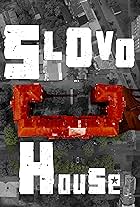A story about a tragic date in the history of the Crimean Tatar nation - 18 of may 1944 -Stalin's deportation of the Crimean Tatars. Main character of the film - a pilot, twice Hero of the S... Read allA story about a tragic date in the history of the Crimean Tatar nation - 18 of may 1944 -Stalin's deportation of the Crimean Tatars. Main character of the film - a pilot, twice Hero of the Soviet Union, Amehtan Sultan - goes on furlough to his native town Alupka in May of 1944 an... Read allA story about a tragic date in the history of the Crimean Tatar nation - 18 of may 1944 -Stalin's deportation of the Crimean Tatars. Main character of the film - a pilot, twice Hero of the Soviet Union, Amehtan Sultan - goes on furlough to his native town Alupka in May of 1944 and witnesses the deportation.
- Awards
- 1 win total
Featured reviews
The film starring-point is soon after Crimea liberation from three-years of destructive Nazi occupation. Sultan returns home to visit his relatives, coinciding with the Commissar of State Security decree to harshly punish by deportation, based on lavish collective collaboration charges, all Crimean Tatars to Central Asia. A race historically regarded as anti-Soviet by its Moscow crony masters.
A Ukrainian Crimean independent television channel produced and financed film. Given the pungent politically situation, the film aims a scattering of jingoism directed as a slap in the face to its Russian neighbours. Generally, Haytarma will be appreciated by eager historical nuts and cherished by nationalistic Ukrainians and ethnic Tatars. Yet, haply attention and interest will be recognised by mainstream international theatre audiences or DVD viewers. In short, Haytarma is a deeply moving patriotic film, visualising tales, revision told, lived and experienced by a population nations parents' and grandparents' to the present generation; yet a true-story not unappreciated by non-nationals of this geographical location. The film is historically genuine, historically accurate and admirably depicts the identity of the people and national characteristics. Even though, hefty questions still require riposte, and answers are still debated and disputed regarding the forcible deportation, carefully, though the film is neither over patriotic or aloft Russophobic.
Haytarma is a short film, ending unexpectedly with a loose conclusion. Yet, the story is griping and historical faultless. A crime against humanity? Or a state security requisite? Neither should distract against the quality of this short-film.
Haytarma tells the tragic, true story of the Sürgünlik, the 1944 forcible deportation of the Crimean Tatars by Stalin to other parts of the USSR. 18 May 2014 commemorates the 70th anniversary of one of the world's most frighteningly rapid and thorough ethic cleansing. Over three days, the entire Crimean Tatar population of about 195,000 was relocated to Siberia, the Urals, and Central Asia. It has been estimated that 110,000 individuals died of hunger, exposure, and disease during transportation and the first year of resettlement. This "special operation" remains a controversial topic (as evidenced by the public outcry following Russian Consul Vladimir Andreyev's recent comments that Haytarma distorted historical truth). Many Russians insist all Tatars betrayed the USSR by collaborating with the Nazis and thus were an enemy nation; the Tatars insist that such a sweeping (and false) accusation served as an excuse for culturally, religiously, geographically, and economically motivated genocide.
Haytarma follows the real life experiences of Major Amet-Khan Sultan (played by Akhtem Seitablaev who is also the director), a fighter pilot in the Red Army and twice-decorated Hero of the Soviet Union. Given a three-day leave of duty, he and two friends travel to Sultan's home town of Alupka which lies just a little south of Yalta along the coast. They arrive on 16 May and after a celebratory homecoming are swept into the chaos and terror of the Sürgünlik.
Haytarma is not only important as the first Crimean Tatar language feature film (financed by ATR TV, the Crimean Tatar independent television channel) but as an example of the politics of memory. The interplay between government policies, popular culture, social norms, ethnic/racial differences, and individual and collective experiences influence how events are remembered and the way history is written. If something is forgotten or discarded, it fails to enter historical record. Haytarma, like Shoah (1985), A Cry From the Grave (1999), Ararat (2002), and Katyn (2007), resurrects an event that has been politically and historically swept under the carpet. The film is "dedicated to our ancestors without whom our memory and culture would not exist." In short, the film hopes to help reconstruct the identity of the Crimean Tatars who since 1989 have been officially allowed to return to their ancestral homeland. "Haytarma" translates as "return" and is also the name of a Crimean Tatar folk dance symbolizing the eternal course of life.
my interest in the movie is because my father in law is ukrainian. he is not from crimea, but i pick up knowledge of the country in bits and pieces. while i can deduce that soviet authorities are directing the expulsion of these people, i am told nothing of who the people are, their history, what is the cause of the expulsion, etc. the movie did encourage me to google, where i find the population is Muslim and the russians have some proof that they were nazi collaborators. as confusing and complex as ukraine is, i know further research won't yield an answer of one side being "right". the movie offers no help in that respect.
Storyline
Did you know
- ConnectionsFeatured in (Polo)ostrov Krym (2018)
Details
- Release date
- Country of origin
- Official site
- Languages
- Also known as
- Хайтарма
- Production companies
- See more company credits at IMDbPro
- Runtime1 hour 29 minutes
- Color
Contribute to this page























